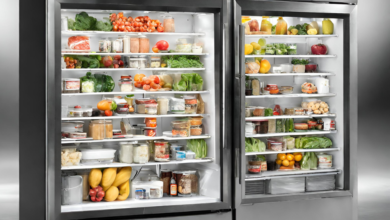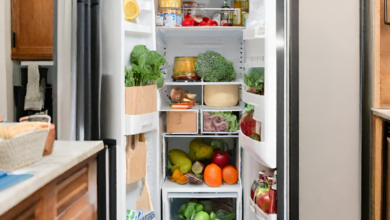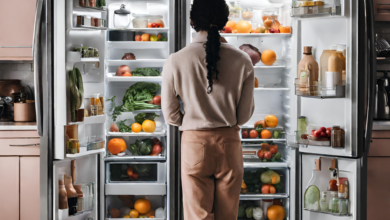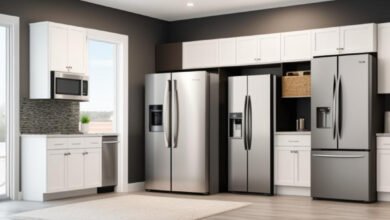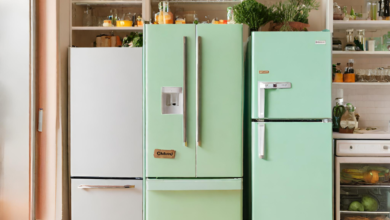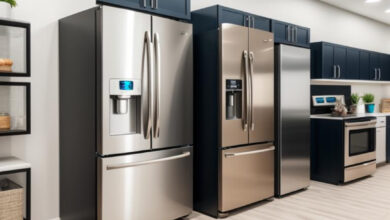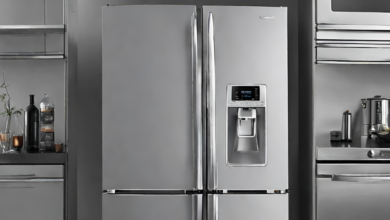The Future of Refrigerators: Transforming Homes with IoT Capabilities for Efficient Living

In the era of smart homes and interconnected devices, the integration of Internet of Things (IoT) capabilities into everyday appliances has become a driving force in revolutionizing how we live. One such appliance at the forefront of this technological evolution is the refrigerator. In this detailed blog, we will explore the myriad ways in which refrigerators with IoT capabilities contribute to efficient living, making our daily lives more convenient, sustainable, and interconnected.
I. Understanding IoT in Refrigerators
1.1 What is IoT?
Before delving into the specifics of IoT-enabled refrigerators, let’s define the concept of the Internet of Things. IoT refers to the network of interconnected devices and objects embedded with sensors, software, and other technologies that enable them to collect and exchange data. In the context of refrigerators, this means leveraging the power of connectivity to enhance functionality and user experience.
1.2 The Evolution of Smart Refrigerators
The journey of refrigerators from basic cooling devices to smart appliances has been remarkable. Traditional refrigerators were limited to preserving food, but with IoT integration, they have evolved into intelligent hubs that provide a plethora of features aimed at making our lives more efficient.
II. Key IoT Features in Refrigerators
2.1 Remote Monitoring and Control
One of the standout features of IoT-enabled refrigerators is the ability to monitor and control them remotely. With dedicated mobile apps, users can check the contents of their fridge, adjust temperature settings, and even receive alerts for things like door left ajar or power outages. This not only adds a layer of convenience but also helps in preventing food spoilage.
2.2 Inventory Management and Food Tracking
Imagine a refrigerator that keeps track of its contents and informs you when certain items are running low or approaching their expiration date. IoT refrigerators offer precisely this functionality. Embedded cameras and sensors enable automatic inventory tracking, reducing food waste and streamlining grocery shopping.
2.3 Energy Efficiency Optimization
Energy consumption is a significant concern in household appliances. IoT-enabled refrigerators leverage data analytics to optimize energy usage based on usage patterns and external factors like weather. This results in not only lower electricity bills but also a reduced environmental footprint.
2.4 Smart Scheduling and Adaptive Cooling
IoT refrigerators are equipped with intelligent scheduling features that allow users to set specific cooling profiles for different times of the day. For instance, during off-peak hours, the refrigerator can operate at a lower energy consumption level without compromising the freshness of stored items. Adaptive cooling ensures that the appliance adjusts to changing conditions to maintain optimal temperature.
III. Connectivity and Integration
3.1 Interconnected Kitchen Ecosystem
The true power of IoT lies in its ability to create a connected ecosystem within the kitchen. Refrigerators can communicate with other smart appliances like ovens, dishwashers, and coffee makers to coordinate tasks seamlessly. For example, if the refrigerator detects that certain ingredients are running low, it can communicate with the oven to suggest recipes based on available items.
3.2 Integration with Virtual Assistants
Voice-activated virtual assistants like Amazon’s Alexa or Google Assistant have become ubiquitous in smart homes. IoT refrigerators seamlessly integrate with these assistants, allowing users to perform tasks such as adding items to the shopping list, checking inventory, or adjusting settings using voice commands.
IV. Security and Privacy Concerns
4.1 Data Security Measures
As our appliances become more interconnected, the need for robust security measures becomes paramount. IoT refrigerators store sensitive information about our eating habits, preferences, and even shopping patterns. Manufacturers employ advanced encryption protocols and authentication mechanisms to safeguard this data from unauthorized access.
4.2 Privacy Controls for Users
To address privacy concerns, manufacturers provide users with granular control over the data collected by IoT refrigerators. Users can customize privacy settings, determining what information is shared and with whom. Transparent privacy policies and regular software updates also play a crucial role in ensuring the security of user data.
V. Overcoming Challenges
5.1 Affordability and Accessibility
One of the challenges in the widespread adoption of IoT refrigerators is the initial cost and accessibility. While the prices of these smart appliances have been gradually decreasing, making them more affordable for a broader audience remains a priority for manufacturers. Government incentives and subsidies may play a role in accelerating this trend.
5.2 Standardization and Interoperability
The IoT landscape is diverse, with various manufacturers adopting different communication protocols and standards. Standardization and interoperability efforts are crucial to ensuring that IoT-enabled refrigerators from different brands can seamlessly communicate with each other and other smart devices in the home.
VI. The Future of Refrigerators: Sustainable and Connected Living
6.1 Environmental Impact
Beyond the convenience and efficiency gains, IoT refrigerators contribute to sustainable living. Energy optimization, reduced food waste, and eco-friendly manufacturing practices are integral to the environmental impact of these appliances. As technology continues to advance, we can expect even more environmentally conscious features in future refrigerator models.
6.2 Continuous Innovation and Upgradability
One of the advantages of IoT-enabled appliances is their potential for continuous improvement through software updates. Manufacturers can introduce new features, enhance security, and address emerging challenges without the need for physical upgrades. This not only extends the lifespan of the appliance but also ensures users stay at the forefront of technological advancements.
VII. Conclusion
In conclusion, refrigerators with IoT capabilities represent a significant leap in the evolution of household appliances. The seamless integration of connectivity, data analytics, and smart features enhances not only the convenience of daily living but also contributes to sustainability and energy efficiency. As manufacturers address challenges and innovations continue to unfold, the future of refrigerators promises an exciting journey toward a more interconnected and efficient lifestyle. Embracing these technological advancements can lead to a kitchen that not only preserves our food but also transforms the way we experience and interact with our homes.
